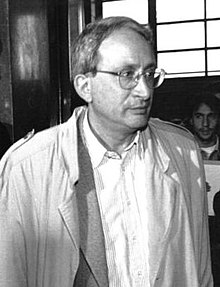
Alberto Franceschini (born 26 October 1947) is a founder and former leading member of the Italian far-left [1] terrorist organization, the Red Brigades (Brigate Rosse), along with Renato Curcio, Margherita Cagol and Mario Moretti.

Alberto Franceschini (born 26 October 1947) is a founder and former leading member of the Italian far-left [1] terrorist organization, the Red Brigades (Brigate Rosse), along with Renato Curcio, Margherita Cagol and Mario Moretti.
Franceschini was born in Reggio Emilia into a communist family. His father had been arrested for anti-fascist activities in the 1930s, and his grandfather was one of the founders of the Italian Communist Party. At a young age he became a member of the Italian Communist Youth Federation.
The Red Brigades were formed in the second half of 1970 as a result of the merger of Renato Curcio's Proletarian Left and a radical student and worker group. They went completely underground and organized the Red Brigades and spent the next three years, from 1972 to 1975, engaging in a series of bombings and kidnappings of prominent figures. Franceschini was captured and imprisoned for setting up an armed band, setting up a subversive association responsible for many killings and kidnapping in 1974. He was released in 1992. [2] [3]
He appeared in a BBC documentary about Operation Gladio in June 1992 [4]

Francesco Maurizio Cossiga was an Italian politician. A member of Christian Democracy, he was prime minister of Italy from 1979 to 1980 and the president of Italy from 1985 to 1992. Cossiga is widely considered one of the most prominent and influential politicians of the First Italian Republic.
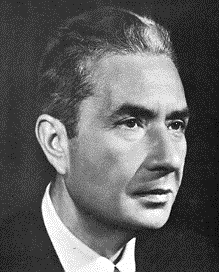
Aldo Romeo Luigi Moro was an Italian statesman and prominent member of Christian Democracy (DC) and its centre-left wing. He served as prime minister of Italy in five terms from December 1963 to June 1968 and from November 1974 to July 1976.
Carlo Alberto dalla Chiesa was an Italian Carabinieri general, notable for campaigning against terrorism during the Years of Lead. He was assassinated in the Via Carini massacre by the Sicilian Mafia in Palermo.
Operation Gladio was the codename for clandestine "stay-behind" operations of armed resistance that were organized by the Western Union (WU), and subsequently by NATO and by the CIA, in collaboration with several European intelligence agencies during the Cold War. Although Gladio specifically refers to the Italian branch of the NATO stay-behind organizations, Operation Gladio is used as an informal name for all of them. Stay-behind operations were prepared in many NATO member countries, and in some neutral countries.

The Piazza Fontana bombing was a terrorist attack that occurred on 12 December 1969 when a bomb exploded at the headquarters of Banca Nazionale dell'Agricoltura in Piazza Fontana in Milan, Italy, killing 17 people and wounding 88. The same afternoon, another bomb exploded in a bank in Rome, and another was found unexploded in the Tomb of the Unknown Soldier. The attack was carried out by the Third Position, neo-fascist paramilitary terrorist group Ordine Nuovo and possibly certain undetermined collaborators.

Renato Curcio is a former terrorist, and the former leader of the Italian far-left terrorist organization, the Red Brigades.
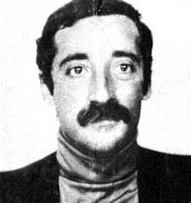
Mario Moretti is an Italian terrorist and convicted murderer. A leading member of the Red Brigades in the late 1970s, he was one of the kidnappers of Aldo Moro, the president of Italy's largest political party Democrazia Cristiana, and several times premier. In 1978, Moretti confessed to killing Moro.
Vincenzo Vinciguerra is an Italian neo-fascist activist, a former member of the Avanguardia Nazionale and Ordine Nuovo. He is currently serving a life-sentence for the murder of three Carabinieri by a car bomb in Peteano in 1972. The investigation in this previously unsolved affair by prosecutor Felice Casson led to the revelation of "Gladio" networks around Western Europe.
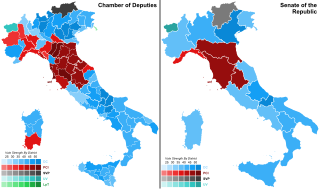
The 1979 Italian general election was held in Italy on 3 June 1979. This election was called just a week before the European vote: the failure to hold the two elections at the same time caused much criticism for wasting public money.

In Italy, the phrase Years of Lead refers to a period of political violence and social upheaval that lasted from the late 1960s until the late 1980s, marked by a wave of both far-left and far-right incidents of political terrorism and violent clashes.

Buongiorno, notte is an Italian film released in 2003 and directed by Marco Bellocchio. The title of the feature film, Good Morning, Night, is taken from a poem by Emily Dickinson.
The Central Intelligence Agency (CIA) has been involved in Italian politics since the end of World War II. The CIA helped swing the 1948 general election in favor of the centrist Christian Democrats and would continue to intervene in Italian politics until at least the early 1960s.
Fulvio Croce was an Italian lawyer. The president of the Turin Bar Association, he was killed by a terrorist group, the Red Brigades.

Margherita Cagol, also known by the war name Mara, was a terrorist and a leader of the Italian far-left urban guerrilla and terrorist organisation the Red Brigades. She was married to Renato Curcio, another leader of this terrorist group.

The kidnapping and murder of Aldo Moro, also referred to in Italy as the Moro case, was a seminal event in Italian political history. On the morning of 16 March 1978, the day on which a new cabinet led by Giulio Andreotti was to have undergone a confidence vote in the Italian Parliament, the car of Aldo Moro, former prime minister and then president of the Christian Democracy party, was assaulted by a group of far-left terrorists known as the Red Brigades in via Fani in Rome. Firing automatic weapons, the terrorists killed Moro's bodyguards — two Carabinieri in Moro's car and three policemen in the following car — and kidnapped him. The events remain a national trauma. Ezio Mauro of La Repubblica described the events as Italy's 9/11. While Italy was not the sole European country to experience extremist terrorism, which also occurred in France, Germany, Ireland, and Spain, the murder of Moro was the apogee of Italy's Years of Lead.

Prospero Gallinari, also known as "Gallo", was an Italian terrorist, a member of the Red Brigades (BR) in the 1970s and 1980s.

The Red Brigades was a Marxist–Leninist armed terrorist organization, which was operating as a far-left guerilla and terrorist group based in Italy. It was responsible for numerous violent incidents during Italy's Years of Lead, including the kidnapping and murder of Aldo Moro in 1978. A former prime minister of Italy through the Organic centre-left, the murder of Aldo Moro was widely condemned, as was the murder of left-wing trade unionist Guido Rossa in January 1979. Sandro Pertini, the then left-wing president of Italy, said at Rossa's funeral: "It is not the President of the Republic speaking, but comrade Pertini. I knew [the real] red brigades: they fought with me against the fascists, not against democrats. For shame!"
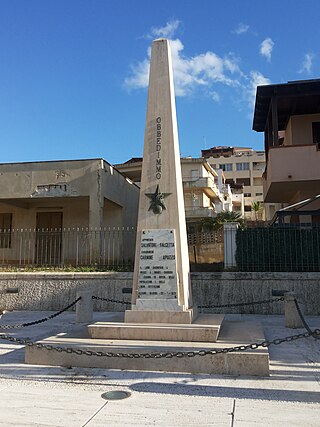
The Massacre of Alcamo Marina refers to a double murder that occurred on 27 January 1976 in a Carabinieri station at Alcamo Marina, situated in the province of Trapani in the Italian island of Sicily. In the middle of the night, unknown gunmen broke into the station and shot dead two Carabinieri officers. Initially the Red Brigades were suspected, although they denied having anything to do with the attack, but eventually some youngsters from the area, including Giuseppe Gulotta, were arrested and convicted, and then absolved after more than 30 years. The Gulotta case represents one of the worst cases of miscarriage of justice and unjust detention in Italian history: Gulotta spent 22 years in jail and was then acquitted during a revisal of the trial, which took place after one of the Carabinieri officers involved in the investigation admitted that Gulotta's confession was obtained through torture and intimidation.

Guido Rossa was an Italian worker and syndicalist who was born in Cesiomaggiore, Veneto, and lived for several years in Turin. His first job was at the age of 14 as a worker in a ball bearing factory, then at Fiat in Turin as a milling machine worker. In 1961 he moved to Genoa to work for Italsider and, the following year, was elected to the labor union FIOM-CGIL. As a member of the Italian Communist Party, he was a trade unionist for the labor union CGIL at Italsider in Genoa-Cornigliano. He denounced to the Italian police a colleague, Francesco Berardi, who produced propaganda at Italsider on behalf of the Red Brigades. In retaliation, Rossa was killed by the Red Brigades on 24 January 1979, during the Years of Lead.
In May 1978, Aldo Moro, a Christian Democracy (DC) statesman who advocated for a Historic Compromise with the Italian Communist Party, (PCI), was murdered after 55 days of captivity by the Red Brigades (BR), a far-left terrorist organization. Although the courts established that the BR had acted alone, conspiracy theories related to the Moro case persist. Much of the conspiracy theories allege additional involvement, from the Italian government itself, its secret services being involved with the BR, and the Propaganda Due (P2) to the CIA and Henry Kissinger, and Mossad and the KGB.